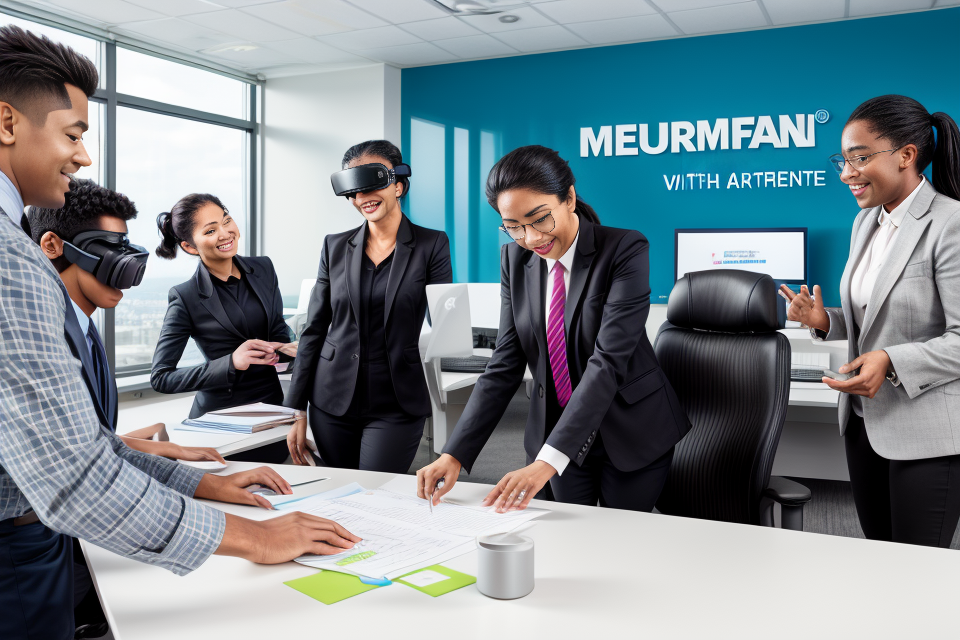
Experiential learning and transformative learning are two different approaches to education that emphasize different aspects of the learning process. While experiential learning focuses on hands-on learning and the acquisition of practical skills, transformative learning is about creating a shift in consciousness and understanding the world in a new way. This article will explore the differences between these two approaches and help you understand how they can be used to enhance your learning experience.
Experiential learning and transformative learning are two distinct learning approaches that involve different levels of reflection and transformation. Experiential learning focuses on learning through experience and active participation, allowing individuals to acquire knowledge and skills by engaging in activities such as hands-on training, problem-solving, or simulation exercises. It emphasizes the importance of direct experience and encourages learners to reflect on their experiences to develop new insights and understanding.
On the other hand, transformative learning is a deeper and more profound form of learning that involves a shift in an individual’s worldview, values, or beliefs. It occurs when learners challenge their existing assumptions and deeply held beliefs, leading to a fundamental change in their understanding of themselves and the world around them. Transformative learning often involves a critical reflection on one’s experiences and the integration of new insights into one’s personal and professional life. While experiential learning is more focused on acquiring new knowledge and skills, transformative learning aims to create a lasting impact on an individual’s personal and professional growth.
Experiential Learning
Definition and Explanation
Overview of Experiential Learning
Experiential learning is a process of learning through experience. It involves actively engaging in a task or activity to gain knowledge and skills. This type of learning is based on the idea that people learn best through experience and reflection.
Key Characteristics of Experiential Learning
- Active involvement: Participants actively engage in the learning process by participating in activities and tasks.
- Reflection: Participants reflect on their experiences to gain insight and understanding.
- Connection to prior knowledge: Experiential learning connects new knowledge to prior knowledge and experiences.
- Application of knowledge: Participants apply what they have learned to real-world situations.
Experiential learning is often used in educational settings, such as in outdoor education, leadership development, and team building. It is also used in corporate training and professional development programs.
Overall, experiential learning is a hands-on approach to learning that emphasizes active participation and reflection. It is a powerful tool for learning new skills and gaining insight into one’s own experiences.
Benefits of Experiential Learning
Enhanced Retention of Information
Experiential learning involves actively engaging in activities and reflecting on the experience, which can lead to improved retention of information. When learners actively participate in a task, they are more likely to remember the information and apply it in the future. This type of learning is also known as “learning by doing” and is a powerful tool for retaining information.
Improved Problem-Solving Skills
Experiential learning also helps to improve problem-solving skills. By engaging in activities and reflecting on the experience, learners are able to develop their critical thinking and problem-solving abilities. They are able to apply what they have learned to real-world situations and develop creative solutions to problems.
Greater Creativity and Innovation
Experiential learning can also lead to greater creativity and innovation. When learners are actively engaged in activities, they are able to explore new ideas and develop new perspectives. This type of learning can also foster a sense of creativity and innovation, which can be applied to a variety of situations.
Examples of Experiential Learning
Outdoor Education Programs
Outdoor education programs are a type of experiential learning that involves learning through active participation in outdoor activities. These programs are designed to promote personal growth and development through hands-on experiences in nature. Examples of outdoor education programs include camping trips, rock climbing, kayaking, and hiking. These programs are often used to teach teamwork, leadership, and problem-solving skills.
Team-Building Activities
Team-building activities are another example of experiential learning. These activities are designed to improve communication, collaboration, and trust among team members. Examples of team-building activities include ropes courses, scavenger hunts, and group problem-solving exercises. These activities are often used in corporate settings to improve teamwork and productivity.
Virtual Reality Training
Virtual reality training is a type of experiential learning that uses technology to create immersive learning experiences. This type of training is often used in fields such as medicine, aviation, and military training. Examples of virtual reality training include flight simulators, surgical simulation, and emergency response training. These training programs allow learners to experience real-world scenarios in a safe and controlled environment.
Transformative Learning
Transformative learning is a process of self-reflection and critical thinking that challenges an individual’s beliefs, values, and assumptions, leading to a significant change in their understanding of the world and their place within it. It is a holistic approach to learning that involves a shift in consciousness and a reorientation of one’s priorities and perspectives.
Overview of Transformative Learning
Transformative learning is characterized by a deep and meaningful engagement with one’s experiences, emotions, and thoughts. It involves a willingness to question one’s assumptions and beliefs, and to explore new ways of thinking and being. It is a process of personal growth and development that can lead to a more integrated and fulfilling life.
Key Characteristics of Transformative Learning
- Self-reflection: Transformative learning involves a deep and meaningful engagement with one’s experiences, emotions, and thoughts. It requires individuals to reflect on their beliefs, values, and assumptions, and to consider how these may be limiting or enhancing their personal growth and development.
- Critical thinking: Transformative learning involves a critical examination of one’s beliefs, values, and assumptions, and a willingness to challenge them when necessary. It requires individuals to question their own beliefs and to explore new ways of thinking and being.
- Integration: Transformative learning involves a process of integrating new insights and perspectives into one’s existing beliefs and values. It requires individuals to reevaluate their priorities and to develop a more integrated and holistic understanding of themselves and the world around them.
- Empowerment: Transformative learning is a process of personal growth and development that can lead to a more integrated and fulfilling life. It empowers individuals to take control of their own learning and to make choices that are consistent with their values and priorities.
Benefits of Transformative Learning
Increased Self-Awareness
Transformative learning promotes increased self-awareness by encouraging individuals to reflect on their experiences, beliefs, and values. This introspection helps individuals develop a deeper understanding of themselves and their place in the world, leading to greater self-awareness and personal growth.
Development of Critical Thinking Skills
Transformative learning also fosters the development of critical thinking skills. By challenging individuals to question their assumptions and beliefs, transformative learning encourages the exploration of multiple perspectives and the examination of evidence-based arguments. This process enhances critical thinking abilities and prepares individuals to make informed decisions in a variety of contexts.
Enhanced Empathy and Perspective-Taking
Additionally, transformative learning enhances empathy and perspective-taking abilities. By encouraging individuals to engage with diverse perspectives and experiences, transformative learning fosters greater understanding and appreciation of others. This increased empathy and perspective-taking ability enables individuals to build stronger relationships, navigate complex social dynamics, and contribute to more inclusive and equitable communities.
Examples of Transformative Learning
Adult Learning Programs
Adult learning programs are a common example of transformative learning. These programs are designed specifically for adult learners and often focus on developing skills and knowledge that are relevant to their personal and professional lives. In these programs, learners are encouraged to reflect on their experiences and identify areas for growth and development. They are also given opportunities to practice new skills and apply their knowledge in real-world situations.
Mindfulness Meditation
Mindfulness meditation is another example of transformative learning. This practice involves paying attention to the present moment and cultivating a non-judgmental awareness of one’s thoughts, feelings, and sensations. Through mindfulness meditation, individuals can develop greater self-awareness and learn to regulate their emotions and thoughts. This can lead to significant personal growth and transformation.
Social Justice Activism
Social justice activism is a third example of transformative learning. This involves engaging in activities and actions that promote social justice and equality. Through social justice activism, individuals can develop a deeper understanding of social issues and develop a sense of civic responsibility. They can also learn to work collaboratively with others and develop leadership skills.
Comparison of Experiential Learning and Transformative Learning
Similarities
Both experiential learning and transformative learning are active learning approaches that focus on personal growth and development. These two approaches also share some similarities in the way they are designed to promote learning.
Both Involve Active Learning
Active learning involves engaging with the material being learned, rather than passively receiving information. Both experiential learning and transformative learning are active learning approaches because they require the learner to participate in the learning process. This means that learners are not just listening to a lecture or reading a book, but they are actively engaged in the learning process.
Both Focus on Personal Growth and Development
Both experiential learning and transformative learning are designed to promote personal growth and development. These approaches emphasize the importance of learning from experience and reflecting on that experience to promote personal growth. This means that learners are encouraged to develop new skills, gain new insights, and become more self-aware through the learning process.
Both Offer Opportunities for Reflection and Feedback
Reflection is a key component of both experiential learning and transformative learning. Reflection involves thinking deeply about an experience and analyzing it to gain new insights. Both approaches encourage learners to reflect on their experiences to promote learning and personal growth. Additionally, both approaches provide opportunities for feedback, which is essential for learners to improve their skills and knowledge.
Differences
Scope and Depth of Learning
- Experiential Learning: Focuses on gaining knowledge and skills through direct experience, usually through practical tasks or problem-solving activities. The scope of learning is limited to the specific task or activity and may not necessarily lead to a deeper understanding of the subject matter.
- Transformative Learning: Aims to create a shift in an individual’s perspective or worldview, leading to a deeper understanding of the subject matter. It involves questioning and reevaluating existing beliefs and assumptions, and can result in a more holistic and integrated understanding of the subject.
Goals and Outcomes
- Experiential Learning: The primary goal is to develop specific skills or knowledge related to the task or activity. The outcomes are typically task-specific and may not necessarily transfer to other contexts.
- Transformative Learning: The goal is to facilitate a transformative experience that leads to a shift in perspective or worldview. The outcomes are often more generalized and can transfer to other contexts, leading to a more comprehensive understanding of the subject.
Level of Emotional Engagement
- Experiential Learning: May involve some emotional engagement, particularly if the task or activity is challenging or emotionally charged. However, the focus is primarily on the cognitive aspects of learning.
- Transformative Learning: Requires a high level of emotional engagement, as it involves questioning and reevaluating deeply held beliefs and assumptions. The emotional aspect of learning is considered an essential component of the transformative process.
Choosing Between Experiential Learning and Transformative Learning
Factors to Consider
Learning Objectives
When deciding between experiential learning and transformative learning, it is crucial to consider the learning objectives. Experiential learning is focused on gaining knowledge and skills through hands-on experience, while transformative learning aims to challenge existing beliefs and attitudes. If the goal is to acquire new skills or knowledge, experiential learning may be the better choice. However, if the objective is to change the learner’s perspective or beliefs, transformative learning may be more appropriate.
Learner’s Needs and Goals
Another factor to consider is the learner’s needs and goals. Experiential learning may be more suitable for learners who prefer active involvement in their learning, while transformative learning may be more beneficial for those who want to challenge their existing beliefs and attitudes. The learner’s prior knowledge and experience can also play a role in determining which approach is more suitable.
Available Resources and Timeframe
Finally, the available resources and timeframe are crucial factors to consider when choosing between experiential learning and transformative learning. Experiential learning often requires more resources, such as equipment and materials, and may take longer to implement. Transformative learning may require less resources but may also take longer to achieve the desired outcomes. It is essential to consider the available resources and timeframe when selecting the appropriate approach for the learner.
FAQs
1. What is experiential learning?
Experiential learning is a process of learning through experience. It involves actively engaging in a task or activity, reflecting on the experience, and drawing conclusions from it. This type of learning is often used in educational and training settings to help individuals develop new skills and knowledge.
2. What is transformative learning?
Transformative learning is a process of learning that results in a significant change in an individual’s thinking, behavior, or worldview. It involves a deep and critical reflection on one’s beliefs, values, and assumptions, and often leads to a shift in perspective or a change in behavior. Transformative learning is often associated with personal growth and development.
3. What are the key differences between experiential learning and transformative learning?
The main difference between experiential learning and transformative learning is the level of change that occurs in the individual. Experiential learning focuses on acquiring new knowledge and skills through direct experience, while transformative learning involves a deeper and more fundamental shift in an individual’s understanding of themselves and the world around them. Transformative learning is often more personal and emotional, while experiential learning is more practical and task-oriented.
4. Can experiential learning lead to transformative learning?
Yes, experiential learning can lead to transformative learning if the individual reflects deeply on their experience and the insights they gain from it. In fact, many transformative learning experiences begin with an experiential learning activity, such as a personal crisis or a new challenge. However, it is important to note that transformative learning is not always a direct result of experiential learning, and can occur through other means as well, such as introspection or discussion with others.
5. How can I encourage transformative learning in my students or colleagues?
There are several ways to encourage transformative learning in your students or colleagues. One approach is to create opportunities for them to engage in reflective dialogue and discuss their beliefs and assumptions. Another approach is to encourage them to step outside of their comfort zone and engage in new and challenging experiences. Providing opportunities for self-directed learning and giving feedback on their progress can also support transformative learning. Ultimately, it is important to create a supportive and open environment that encourages individuals to question their assumptions and reflect on their experiences.


